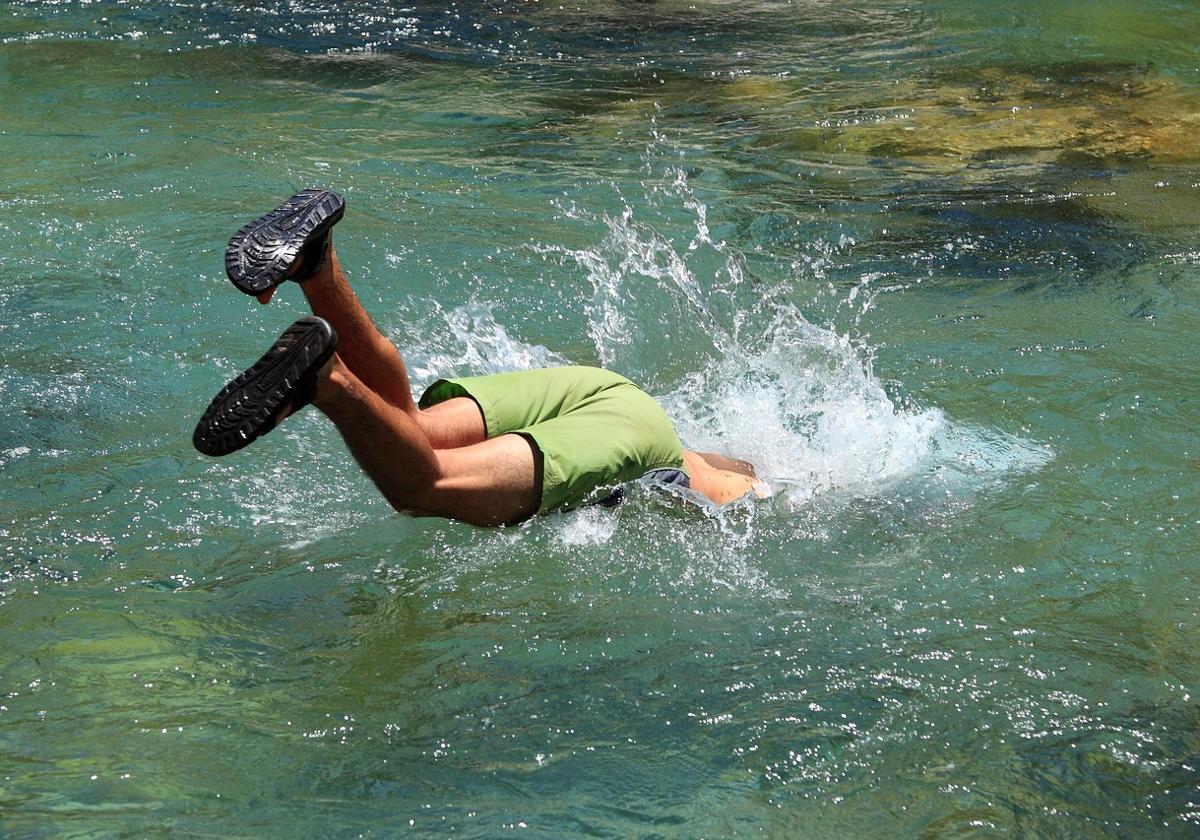Spinal injury experts on Costa del Sol warn of dangers of diving headfirst into water
Medical professionals have also reminded people to avoid drinking alcohol before plunging into the swimming pool or the sea as it gives a false sense of confidence
Health professionals at Malaga's Hospital Regional Universitario have warned swimmers of the dangers that come with imprudent diving during the summer season and called for caution, as 100% of the spinal traumas they see can be avoided. Diving headfirst into the water without checking the depth can result in damage to the cervical area, causing tetraplegia, i.e. loss of motor and sensory function in all four limbs (arms and legs).
According to the hospital staff, between 5% and 8% of traumatic spinal injuries occur precisely because of dives in all types of locations and different bodies of water.
Marta Pájaro is a physical medicine and rehabilitation expert and head of the spinal cord injury patient care unit at the Hospital Regional and, as she explains, "traumatic spinal injuries caused by diving in risky areas are on the rise at this time of year". The most frequent and serious injury affects the cervical, causing loss of strength, mobility and sensitivity in the arms and legs.

"These injuries with great personal and social burden can be prevented in 100% of cases," said Dr Pájaro. She recommends guidelines that can prevent incidents: not bathing in areas where it is not permitted or where water sports are banned; avoiding shallow areas; no diving headfirst; no diving into the waves, as "there may be sandbanks or rocks".
Dr Pájaro also highlights the importance of not diving in areas of poor visibility and avoiding great heights when diving into the sea. "It is not good to be confident in familiar waters," she says. In addition, it is better to avoid alcohol before and during bathing, as it increases the feeling of confidence. She urges for special attention to be given to minors, as the victims are usually young men, starting as young as 15 and usually not older than 40. "Traumatic spinal cord injuries are increasing every year," said Dr Pájaro.
What to do if someone has a suspected spinal injury
If someone has suffered a traumatic spinal injury in the sea, swimming pool, lake or river or if there is a suspicion that they may have, the best thing to do is get the person out of the water if they are at risk of drowning, i.e. get them to safety; immobilise the neck and spine, without moving them, to avoid the most serious injury (the ideal is to put a cervical collar with chin support, so that the person can rest their chin); check their pulse and breathing; call for help and an ambulance and do not transfer them in a private vehicle. Immobilisation should be done with extreme care so as not to increase the chance of worsening the potential injury.

